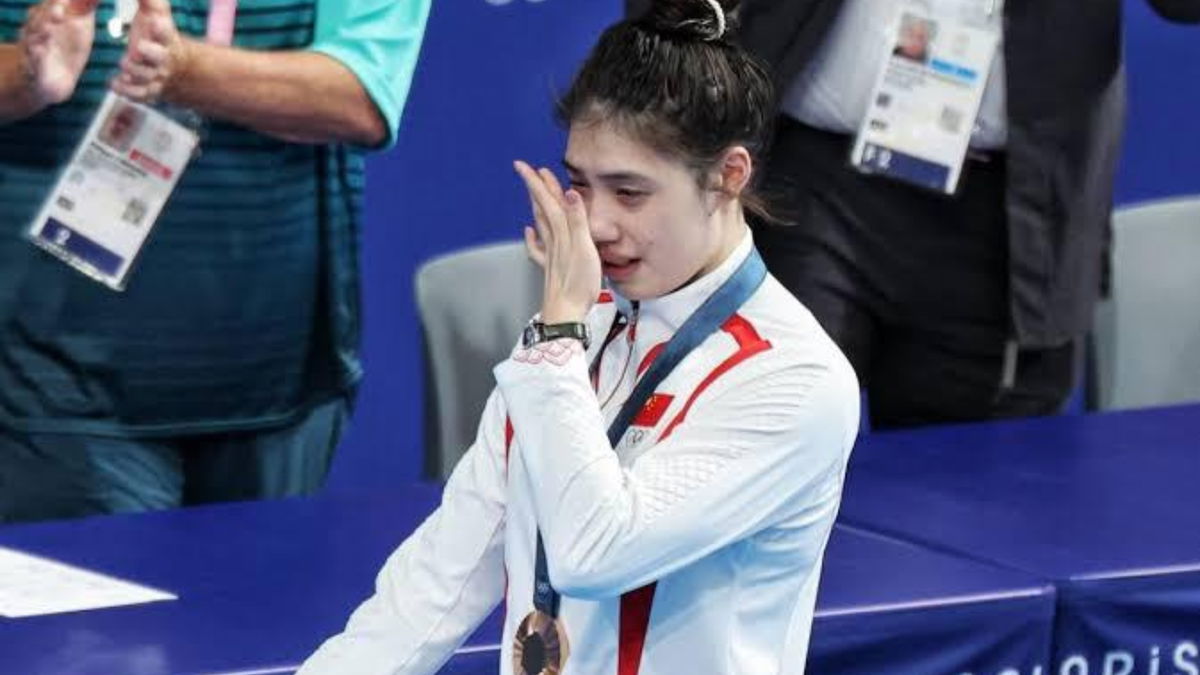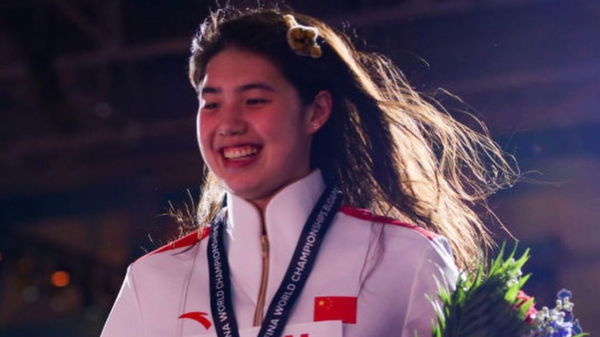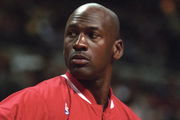

A Swiss investigator criticized the World Anti-Doping Agency (WADA) for its handling of a contentious case involving Chinese swimmers, particularly pointing out the “curious” silence of the agency. While WADA was ultimately given a pass on its actions, the investigator questioned why the agency remained quiet after identifying actions by China that violated rules meant to protect the integrity of global sports.
Watch What’s Trending Now!
WADA recently published Eric Cottier’s report, on the situation involving 23 swimmers such, as Zhang Yufei who had tested positive for performance-enhancing substances in 2021 yet were permitted to participate in competitions. Cottier determined that WADAs choice not to dispute the doping agency’s assertion of contamination was deemed appropriate.
ADVERTISEMENT

Swiss investigator Eric Cottier, in his detailed 56-page report, acknowledged WADA acted within its established rules regarding the controversial case of 23 Chinese swimmers who tested positive for the banned heart medication Trimetazidine (TMZ) in 2021. However, Cottier also highlighted multiple instances where WADA overlooked China’s violations of anti-doping protocols, attributing this more to expediency than to favoritism. “In retrospect at least, the Agency’s silence is curious,” Cottier remarked, expressing surprise at WADA’s lack of response to China’s procedural failures.
ADVERTISEMENT
Travis Tygart, CEO of the U.S. Anti-Doping Agency, highlighted these discoveries by mentioning that China did not adhere to the regulations as outlined in the report, and criticized WADA for its lack of action, in the matter. A significant concern raised was the failure of both WADA and Chinese officials to publicly announce the test results or adequately inform the athletes involved. Of following anti doping procedures that require athletes to prove their innocence themselves when challenged with positive tests results. It was noticed that Chinese authorities took on this responsibility on behalf of the athletes.
Despite the concerns raised in the report by Cottier regarding bias, towards China, the decision not to appeal the case by WADA was welcomed by WADA itself. Olivier Niggli, the Director General of WADA stated that there were lessons to be learned in terms of transparency and communication from this experience. Cottier expressed skepticism about the explanation of contamination specifically questioning how “a few micrograms” of TMZ in a hotel kitchen could result in widespread contamination, within a group.
ADVERTISEMENT
The report didn’t offer any suggestions. But it pointed out important concerns such, as the lack of transparency in the case and the inconsistent record keeping by WADA. In response to this revelation, the WADA executive committee has set up a task force to tackle these issues with a focus on establishing procedures for cases, like group contamination and improving record-keeping standards for major investigations. Meanwhile, Zhang Yufei did everything to prove her innocence and demonstrate her reputation.
Zhang Yufei denies doping accusations, clears the air
Olympic champion Zhang Yufei, one of the 23 Chinese athletes who tested positive for a banned substance before the Tokyo Olympics, defended herself and her teammates back in July. She asserted they had been wrongfully accused of doping. Zhang, addressing the controversy for the first time publicly, insisted that China would never permit its athletes to use performance-enhancing drugs.
ADVERTISEMENT

ADVERTISEMENT
“I don’t think any athlete, Chinese or non-Chinese, would want to destroy the work they’ve built up over years through doping,” Zhang said after a strong performance on the opening day of the Paris Olympics swimming competition. She emphasized that the Chinese government, “does not allow us to dope on purpose.”
She went on to elaborate on how the doping scandal had affected her reputation by straining her relationships, with athletes and causing her to feel misunderstood. “I really hope people don’t view the Chinese swimming team through tinted glasses,” she remarked with worry that her fellow global competitors and the French community might doubt the credibility of athletes in international competitions. What are your thoughts, on this matter?
Top Stories
Sources: John Harbaugh Wasn’t Fired, Left Ravens After Refusing Major Staff Changes

Andy Reid Fires Coach In Attempt to Rebuild Staff After Receiving HC Requests For Chiefs’ Coordinators

Three Arrested in Cleveland For Burglary at Shedeur Sanders’ Home

Mike McDaniel Contract: How Much Do Miami Dolphins Owe the Fired Coach?

Michael Jordan’s Bulls Teammate, Basketball Leagues Founder Dies at 68

Bill Cowher’s Strong Message to Steelers on Firing Mike Tomlin After HC’s Blunt Playoff Message

ADVERTISEMENT
ADVERTISEMENT
ADVERTISEMENT

